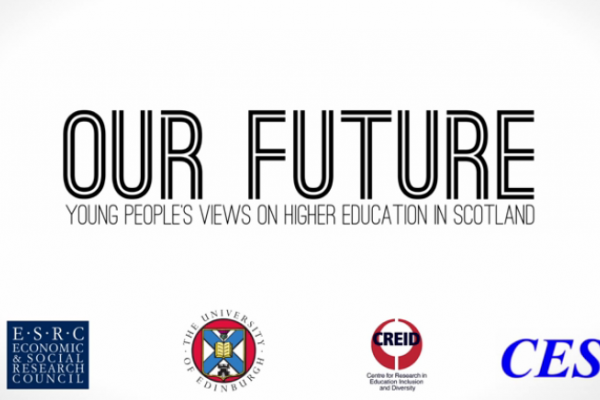Blog by Michael Marra, Director, Five Million Questions. Originally posted on Five Million Questions 3 February 2014
Hosted by CREID and the ESRC Future of the UK and Scotland programme
29th January 2014, National Museum of Scotland, Edinburgh
This one day conference told us a lot about the limitations of the current independence debate and the two principal campaigns. It was stimulating certainly, at times illuminating and, for good or bad, entertaining for an engaged and (in places) slightly enraged audience.
The theatre was of course the play-off between two of the most combative personalities in the referendum debate – Mike Russell MSP, the Cabinet Secretary for Education in the Scottish Government and Alistair Carmichael MP, the Secretary of State for Scotland. The furnace had been purposefully stoked by Mr Russell's speech extensively briefed to journalists with resultant 'UK immigration policy revolts me' headlines screaming out from the front pages delegates were picking up on their way to Chambers Street. We were to hear how UK policy is "driven by UKIP and xenophobia". Mr Carmichael would have to react.
The Education Secretary's speech went down well. His day job means that he knows this audience, of academics and university leaders along with a sprinkling of students, as well as anyone. The tone was warm and complimentary when speaking of Higher Education in Scotland. The contribution to the economy was huge but the cultural significance even greater. The underpinning framework of education was rights based with a sprinkling of social justice. The 'xenophobia' comments related to the immigration cap and the antics of the UK Borders Agency that have been a point of urgent concern for the HE community across the UK for the last couple of years. Universities want more migrant learners rather than fewer and despite the exclusion of students from restrictions Mr Russell was keen to highlight a reduction in Indian students coming to study here that he said was a direct result of the UK coalition's rhetoric. All of this is, of course, part of the independence case which was advanced eloquently and forcefully. For free tuition the case was moral, for a common research area it was practical and for a more liberal immigration policy it was economic.
Prof Charlie Jeffrey, distinguished Politics academic, leader of the ESRC's work in this area and our host for the day, asked the vital question – how divergent can policies be without a regulated border between Scotland and England post independence? The answer that there would have to be 'more vigilance' on behalf of the English sounded like a departure from the regular script. More probing required. What are the practical repercussions of 'more vigilance'?
For all the moral intentions from Mr Russell it is the practicalities of his propositions that look shaky. If Scotland votes Yes in September Mr Russell will most likely have to get around a table with Michael Gove and discuss HE co-operation. The pitch will be a common research area where Scotland can still win more money back than it puts in, Scotland pursuing a significantly more liberal immigration policy with no land border and Scotland making a case in the EU to allow us to discriminate against British students. Something would have to give and something significant at that.
Lunch was quickly followed by Alistair Carmichael and a hastily reworked speech. That is to provide him with an excuse because he was particularly badly served by whatever poor civil servants were reacting to the morning's headlines. A flurry of statistics was followed by an ill-tempered excoriation of Mr Russell for seeking to drag the debate into the gutter. The performance was not to the liking of some in the audience and he was forcefully criticised in questioning. Little had been done to warm the audience with friendly patter. You would have thought he had the tunes in his back catalogue. Many of this audience are funded by research grants dispensed on a UK wide basis with research partners in other non-Scottish UK universities. Many see common cause with their colleagues in rUK HE institutions who are equally opposed to the immigration policies of the current government. Many know that the current 'free' university education system in Scotland is doing nothing to help access from lower socio-economic groups and that the English record is better despite £9k fees. And all in the audience knew, because the bulk of the programme was designed to inform us, that Scottish HE exists in an international marketplace whether we like it or not and that the future of our HE sector lies in broader thinking rather than limited horizons. Mr Carmichael had a moral case there for the making but he singularly failed to do it.
Some of us were left wondering whether it is the singers rather than the songs that will win the day.
Links -
A good blog from Dave Watson (@unisondave) on the days proceedings. Includes good focus on some of the broader themes I have neglected above. http://unisondave.blogspot.co.uk/2014/01/higher-education-and-independence.html
A great film from CREID/ESRC talking to young people about HE, their future, and in small part, the referendum. The film was very warmly received by the conference. Have a look. http://www.youtube.com/watch?v=Alc1XzblgpE

